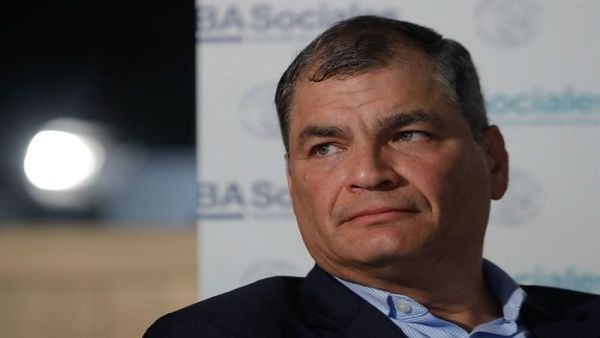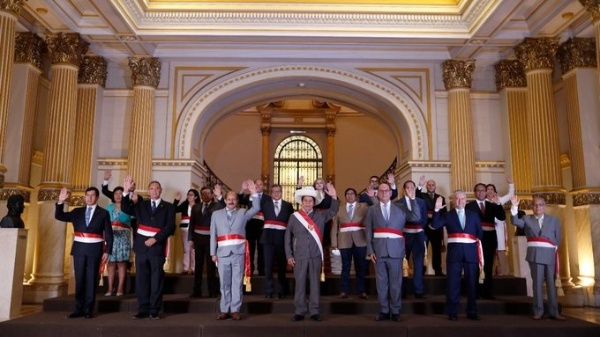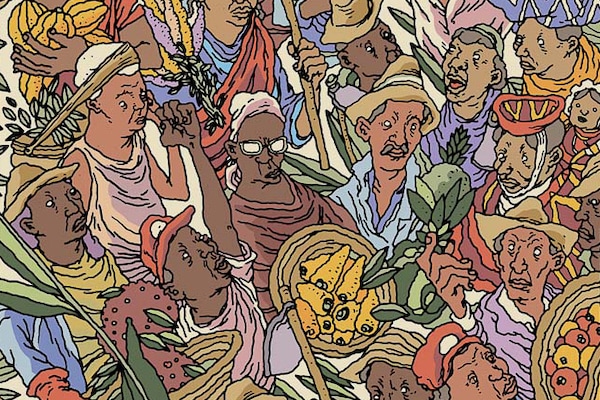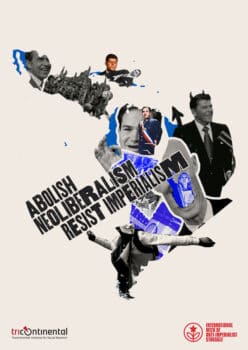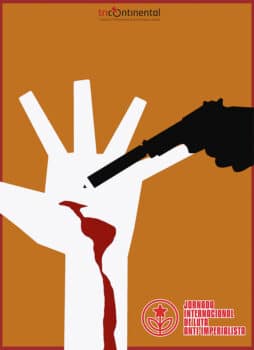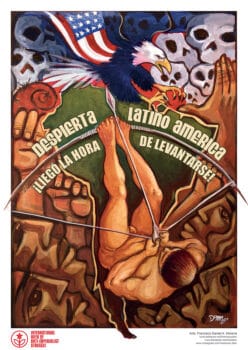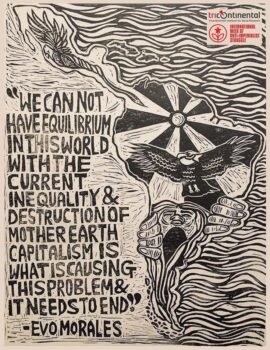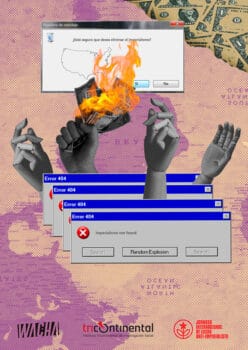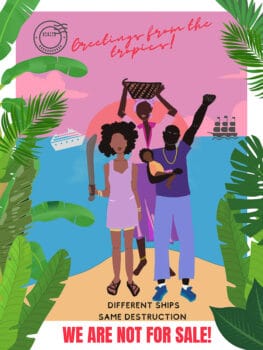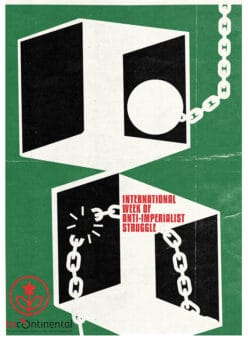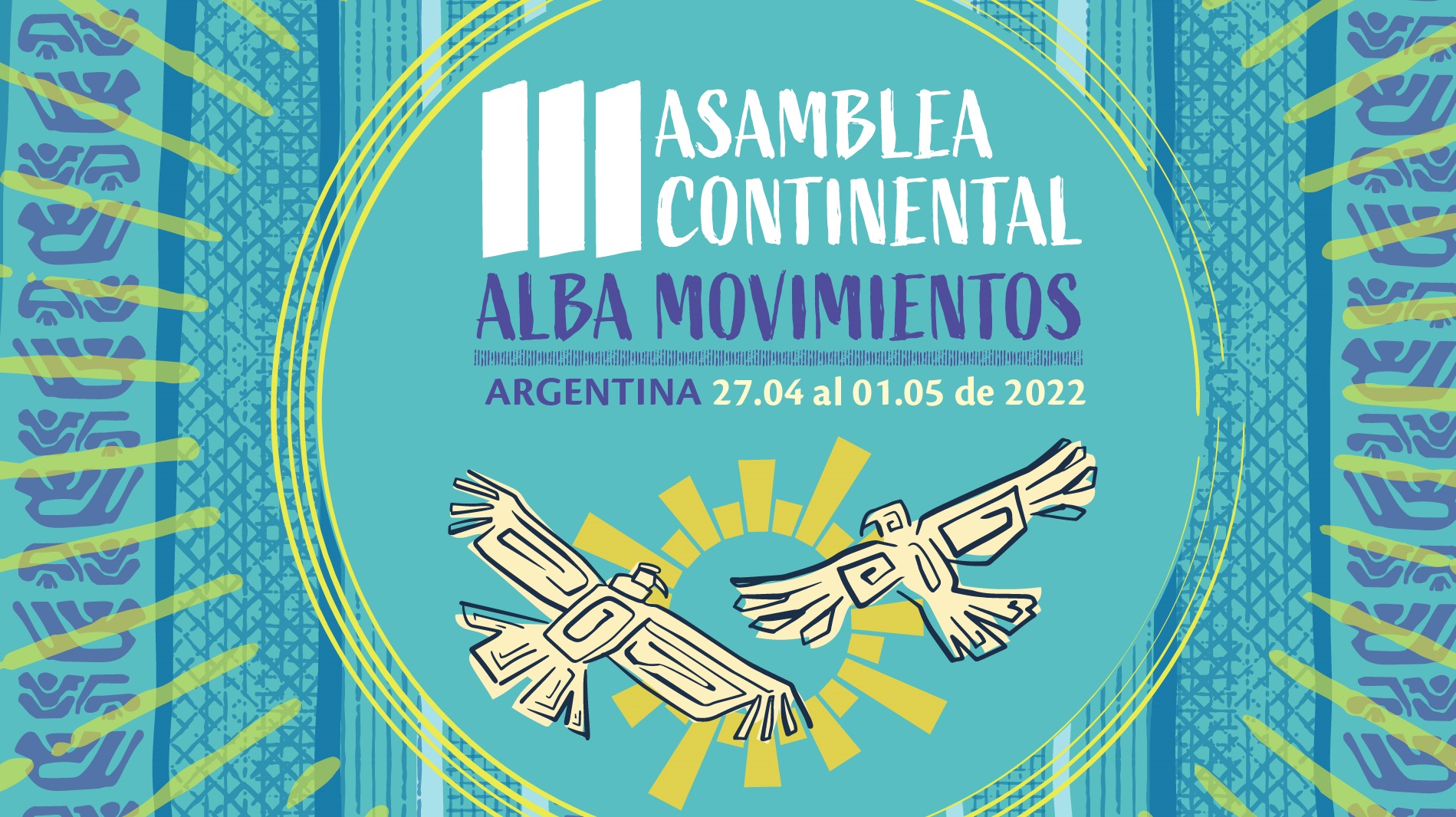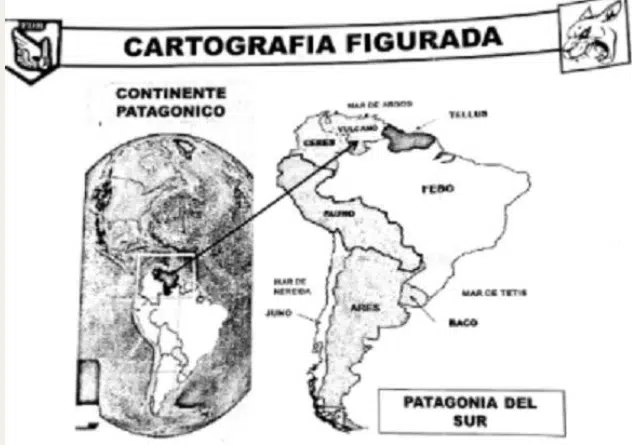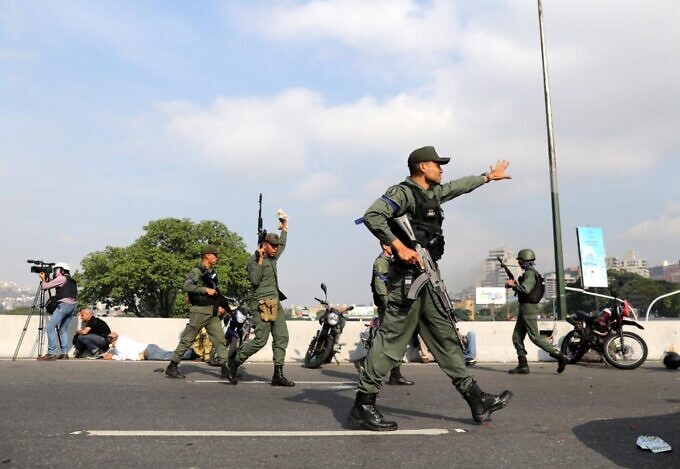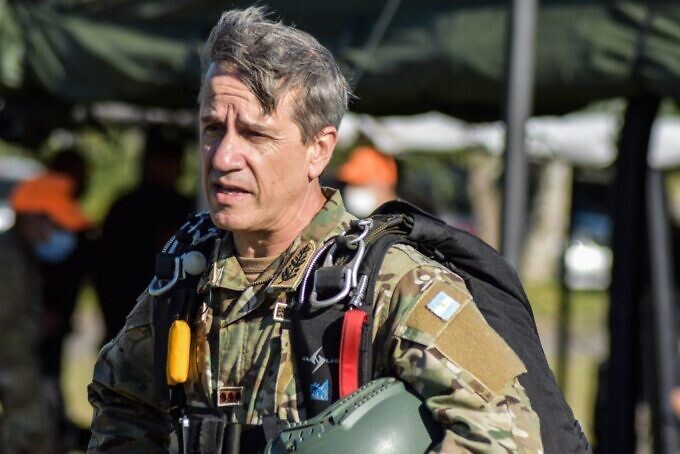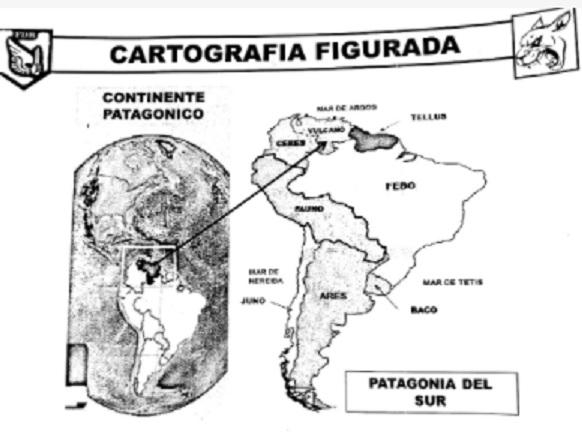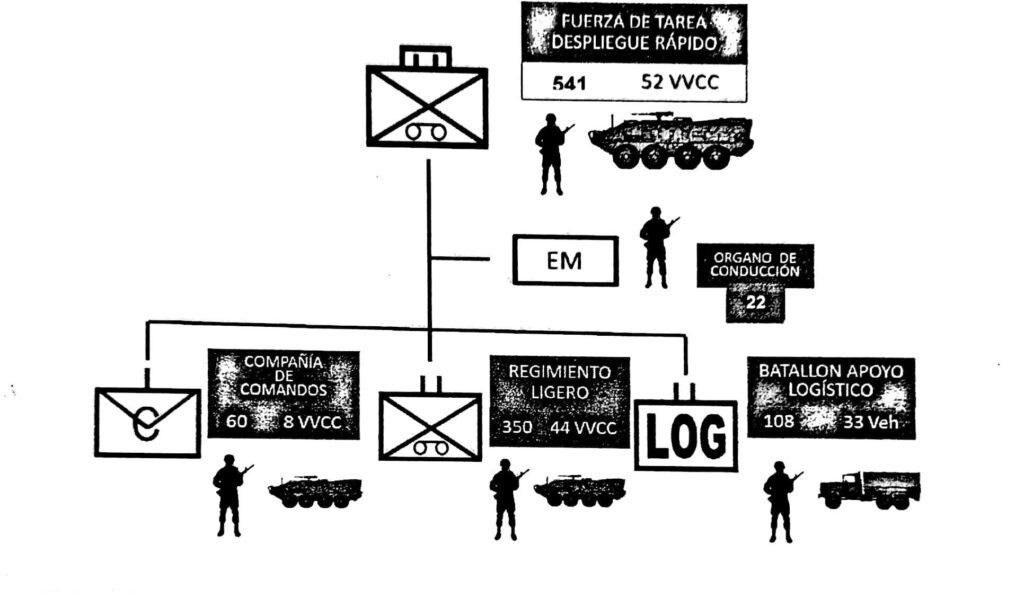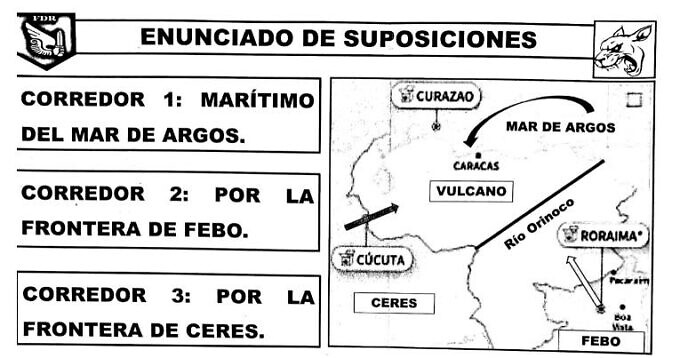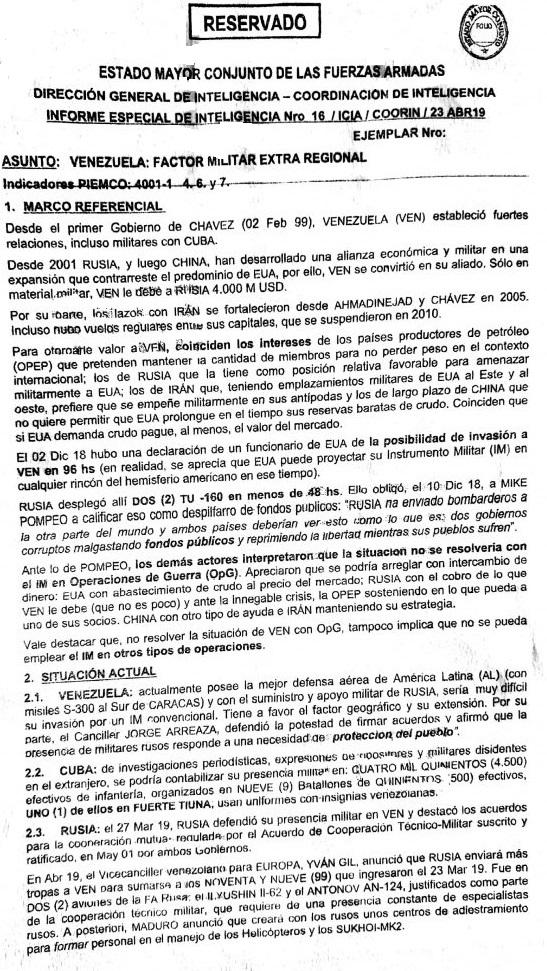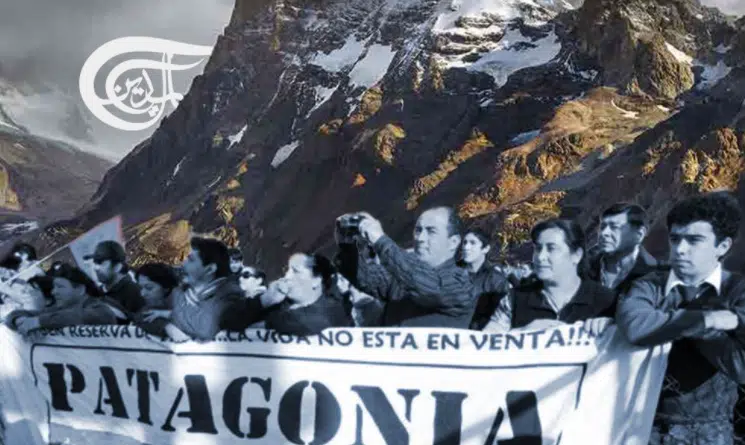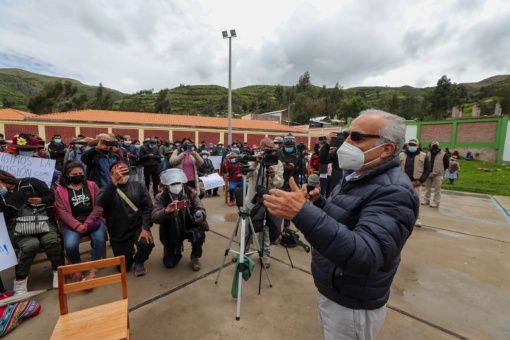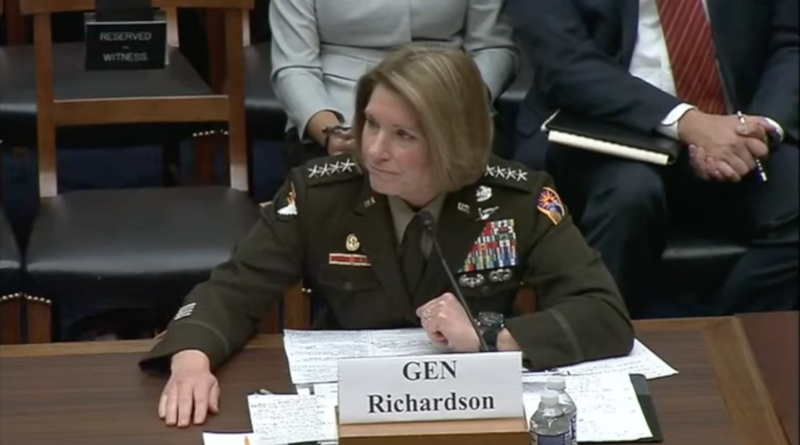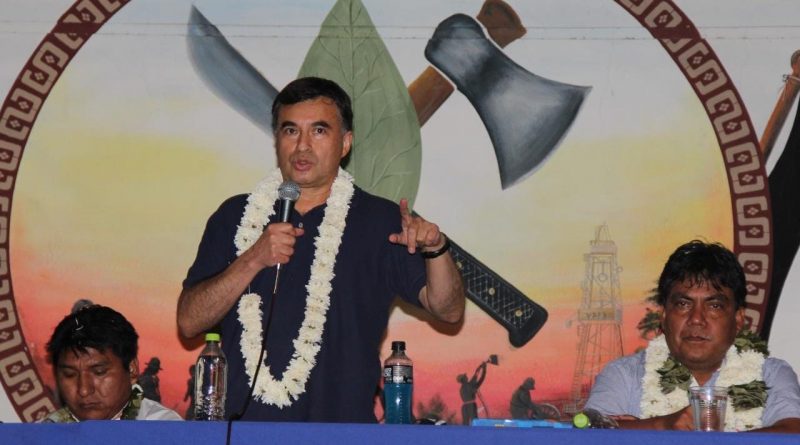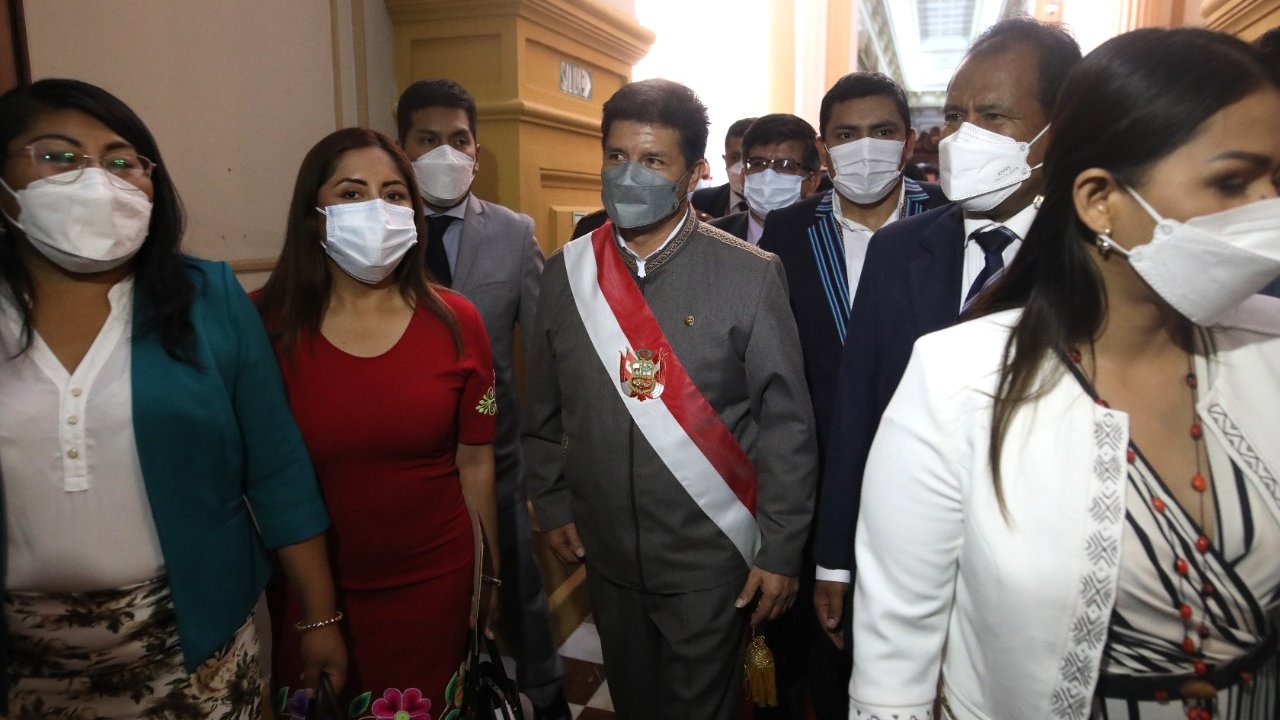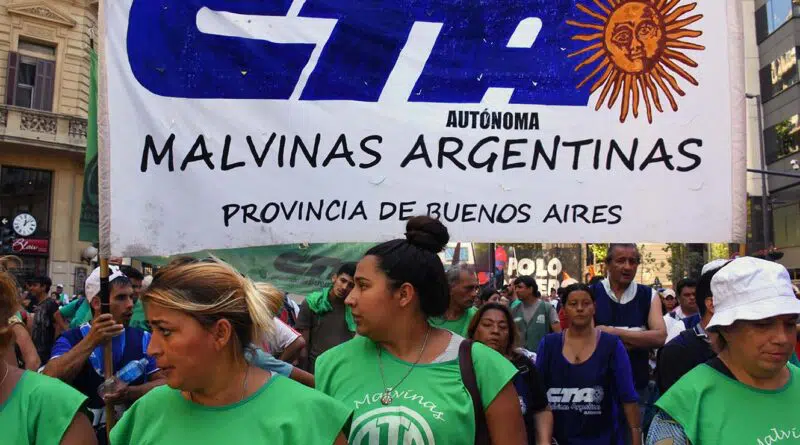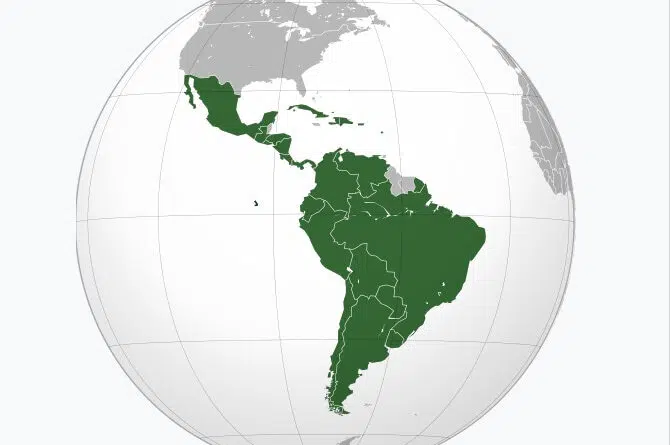 New ‘Pink Tide’ Lacks Necessary Unity
New ‘Pink Tide’ Lacks Necessary Unity
February 4, 2022
By George Tsolakis – Jan 29, 2022
Following victories for social-democratic candidates in Peru’s, Honduras’ and Chile’s presidential elections, the new ‘Pink Tide’ appears to be taking shape. The governments of those countries, join Mexico, Bolivia and Argentina along with the revolutionary socialist governments in Cuba, Venezuela and Nicaragua, to demonstrate that the Latin American people continue to resist neoliberal subjugation and neocolonial interference. With the prospect of Lula returning to power in Brazil and in light of this leftist surge across the continent, regional unity in the face of neocolonialism, is imperative but sadly lacking.
There seems to be a divide between the social-democratic and revolutionary socialist governments of the region. Whatever the legitimate differences among the political parties belonging to the ‘Broad Church’ São Paulo Forum, divisive remarks expressed publicly will be exploited by imperialist and local reactionist forces who have always sought to undermine the unity of popular movements. Clearly depicted in Gabriel Boric’s long-standing views with regard to Cuba, Bolivarian Venezuela and Sandinista Nicaragua, are such remarks. Chile’s president-elect recently reiterated that regarding the governments of these ALBA countries, they have essentially “failed”. While there is a point to be made that various challenges exist in those places, Boric made no mention of the hybrid wars that include all kinds of unconventional and coercive warfare including crippling economic sanctions against the people of all three of the above-stated countries, by the United States and its close allies. He then bluntly dismissed the possibility of engaging with either of the three besieged countries.
Furthermore, Boric’s appointment of Antonia Urrejola as Chile’s minister of foreign affairs has raised eyebrows. Urrejola had been head of a human rights commission working for former Secretary General of the OAS, José Miguel Insulza, during whose term the Honduran government headed by Manuel Zelaya was overthrown by a right-wing coup in 2009, and the year before, there was an unsuccessful coup attempt against Bolivia’s Evo Morales. In both cases the OAS did little to avert the reactionist coups, and Urrejola never publicly spoke out against them. Similarly, she has never taken a stand against the human rights violations committed by the right-wing government of Iván Duque in Colombia and even that of Piñera in her own country.
In terms of neoliberalism infiltrating the region, foreign investors should be panicking about the ‘Pink Tide’, not being reassured of “responsible economic management” by Peru’s new president Pedro Castillo. In this case, “responsible economic management” is nothing more than a euphemism for ensuring Global South economies are held hostage to the private capital of a few. With such a statement, is Castillo implying that Cuba, or perhaps Venezuela, Nicaragua and to an extent Bolivia, follow “irresponsible” economic policies by attempting to serve their people first by undertaking nationalisation and refusing to allow their economies to fall in the hands of private capital?
As illustrated above, any progressive Central or South American government may have the U.S. turn against it for not serving its imperial interests at some point in time. The Empire maintains its age-old neocolonial delusion of viewing Latin America as its “backyard” (or “frontyard” alike), a continent in which it can intervene through sponsoring coups or likewise soft coups, undermining national sovereignty. As recently as 2019, the U.S. openly supported the coup in Bolivia that brought to power a neofascist regime that carried out massacres against peaceful protesters and grossly mishandled the COVID-19 pandemic. The soft coup had ousted the democratically elected government of Evo Morales in Bolivia, on the basis of lawfare tactics involving baseless allegations of electoral fraud. Morales’ Movement Towards Socialism was part of a wave of decolonisation across Latin America, enshrining indigenous rights, redistributing wealth and nationalising key industries. His popular policy of nationalisation in particular, drew the indignation of the U.S. government, the corporate world and its press who function as the ideological “shock troops” against any leftist government in the continent.
Imperialism is a bit like the COVID-19 pandemic. No one is safe from it until everyone is safe from it. In order to best defend national sovereignty and improve regional integration through international blocs such as CELAC, unity between all the leftist governments in Latin America will be necessary moving forward.
https://orinocotribune.com/new-pink-tid ... ary-unity/
*********************************
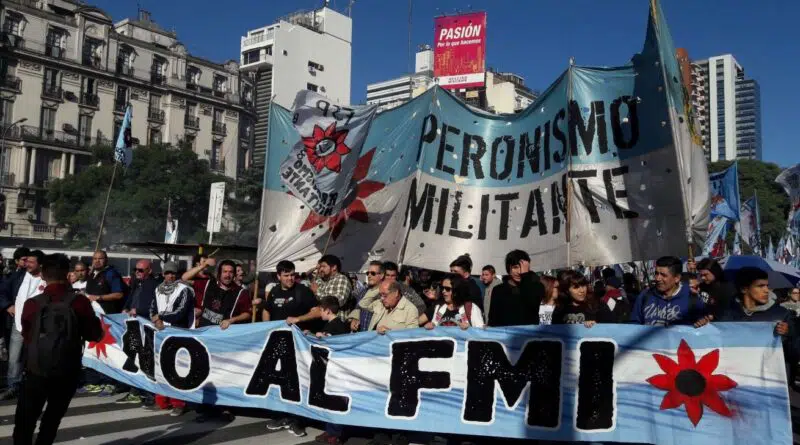 Argentina: An Agreement of More Submission
Argentina: An Agreement of More Submission
February 6, 2022
By Carlos Aznárez and Roberto Perdía – Jan 30, 2022
On Friday last week, President Alberto Fernández announced the new agreement with the International Monetary Fund (IMF) by which he set the will of his government to extend the payment of the debts contracted by former right wing President Macri, and agreed to a series of commitments with the international financial organization where the US has the leading voice.
Since our incorporation into the IMF in 1956, this is the 22nd agreement, and in all of them there are mutual commitments to “lay the foundations for a sustained development”.
In none of the previous 21 agreements was this fulfilled. A disturbing question comes to mind: If it has never been achieved so far, why would it be achieved with this agreement? Could it be because now the “Peronist grandfather” Joe Biden is governing (as some officials here consider him to be) or because the IMF has “become better?” We have another, cruder, simpler and more logical answer: They are trying to find justification for what they have done, a new infamy and a betrayal of the Homeland.
The odious debt: illegitimate, illegal and fraudulent
The popular movement has always questioned the foreign debt, particularly the one taken after the 1976 coup d’état. It was this debt that led to a ruling by Federal Judge Jorge Ballesteros, who described it as illegitimate, illegal and fraudulent, and referred it to Parliament for it to take the necessary measures. What the parliament did was to scrupulously take care of the enemies’ interests, ensuring that nothing was investigated, that the debt was paid back, and that nobody was punished.
After the “argentinazo” of December 19 and 20, 2001, Adolfo Rodríguez Saa took office and announced before the Legislative Assembly the suspension of the debt until it was investigated. A couple of days later the president was abandoned by his own party and colleagues, and being cornered by the forces of economic power, he resigned. For the enemies of the people… things went back to where they should be.
Years went by, and there were agreements, payments, write-offs, swaps and other mechanisms that were the instruments of successive failures and of our progressive and growing decadence.
Macri made a leap in that relationship by receiving a “loan” for $57 billion, $44 billion of which arrived and is now the subject of debate. This “loan,” in addition to violating our laws, was made against the IMF’s own provisions. The payments that have already been made and this most recent agreement reaffirm this swindle, of which those who are responsible are known—the ones who contracted it and those who now validate it, over and above its insurmountable nullities.
Commitments agreed to
Without knowing yet the fine print of this agreement and with some rough outlines of the commitments to which the government agreed, we can get an idea of the course decided by the government.
A control of monetary emission means intervention in the functioning of the Central Bank; public expenditure will be subject to quarterly controls; salary and pension raises must respect fiscal goals; the narrowing of the exchange rate gap so that it does not exceed 30% opens the way to devaluation; demand for the elimination of the fiscal deficit in three years; demand for the continuity of the payment to banks of LELIQs and other financial institutions, with rates higher than inflation, which ensures bank profits, exactly what Alberto Fernández had assured to reduce in order to increase the payments to pensioners.
Consequences of the agreement
After a brief period of respite, the country’s economy will be trapped in the traditional “conditionalities” imposed by the IMF. They will lead to our submission, the stagnation of the nation and the poverty of the people. Our common goods, known as natural resources, are the guarantee for the fulfillment of the debt, because that is where the dollars are “generated” that the government needs to pay.
The extractivist plundering and the attack on the social ecology are the direct and immediate consequence of this agreement.
The political consequences of this agreement will be felt.
This agreement, like so many others, will not be fulfilled soon. Beyond some transitory advantages, the program arising from the IMF’s tutelage will suffer the same fate as the previous ones.
Ignoring our long history in this respect, its effects will fall on the backs of our people and will mark the destiny of the current government.
The agreement by the “soft ones” led by the president is accompanied by the “hard ones” such as the vice president and most of the parliamentary opposition. Their differences and “cracks” do not reach these really important issues.
The unions and pro-government social organizations run the risk of mortgaging their future by supporting this agreement.
An urgent response: Unity and its banners
The ruling party, the partiocratic opposition, the economic forces of power and the press at the service of these sectors have constituted themselves into a SINGLE DEBT PARTY.
The governing party, the trade unions and the social organizations that support it must know that they will be branded with fire as the ones responsible for trying to whitewash an odious debt and an illegal payment. The historical weight of this surrender will fall on them. The legislators still have the historic opportunity of not validating with their vote the approval of this shameful submission.
To the historic enemies of the people, we only say that they should reflect on this behavior that—if confirmed—anticipates dark and dangerous times for the whole country.
As active members of the political and social organization OLP-Resistir y Luchar, we emphasize: In the face of such an aggression against the people, the maximum possible people’s unity must rise up. We must not be fooled into thinking that Macri can return. Macri is already back, he is in this agreement.
The debt and this agreement are the instruments to get us into prolonged debt, to dominate us and to take control of our natural resources for several decades.
The necessary unity has to consolidate itselft and gather all the forces in a Front against the IMF and extractivism.
Featured image: Demonstration against the IMF in Buenos Aires, on May 25, 2021. Photo: Gaston Neck (Wikimedia)
(Resumen Latinoamericano – English)
https://orinocotribune.com/argentina-an ... ubmission/
********************************************
Trapped in IMF debt, Argentina turns to Russia and joins China’s Belt & Road
Argentina is trapped in $44 billion of IMF odious debt taken on by corrupt right-wing regimes. Seeking alternatives to US hegemony, President Alberto Fernández traveled to Russia and China, forming an alliance with the Eurasian powers, joining the Belt and Road Initiative.
ByBenjamin NortonPublished21 hours ago

Argentina China Russia belt and roadArgentina's President Alberto Fernández meets with Russia's President Vladimir Putin and China's President Xi Jinping in February 2022
The United States constantly intervenes in the internal affairs of Latin America, organizing coups d’etat, destabilizing independent governments, trapping nations in debt, and imposing sanctions. Washington sees the region as its own property, with President Joe Biden referring to it this January as “America’s front yard.”
Seeking alternatives to US hegemony, progressive governments in Latin America have increasingly looked across the ocean to form alliances with China and Russia.
Argentina’s President Alberto Fernández did exactly that this February, taking historic trips to Beijing and Moscow to meet with his counterparts Xi Jinping and Vladimir Putin.
Fernández signed a series of strategic agreements, officially incorporating Argentina into Beijing’s international Belt and Road Initiative, while expanding economic partnerships with the Eurasian powers and telling Moscow that Argentina “should be the door to enter” Latin America.
China offered $23.7 billion in funding for infrastructure projects and investments in Argentina’s economy.
In the meetings, Fernández also asked for Argentina to join the BRICS framework, alongside Brazil, Russia, India, China, and South Africa. Xi and Putin reportedly both agreed.
“I am consistently working to rid Argentina of this dependence on the IMF and the US,” Fernández explained. “I want Argentina to open up new opportunities.”
The Argentine president’s comments and meetings with Putin and Xi reportedly angered the US government.
Argentina is trapped in odious debt with the US-controlled IMF
Argentina is a Latin American powerhouse, with significant natural resources and the third-largest economy in the region (after Brazil and Mexico, both of which have significantly larger populations).
But Argentina’s development has often been weighed down by debt traps imposed from abroad, resulting in frequent economic crises, cycles of high inflation, and currency devaluations.
The International Monetary Fund (IMF) – a de facto economic arm of the United States, over which Washington alone has veto power – has significant control over Argentina, having trapped the nation in huge sums of odious debt.
In 2018, Argentina’s right-wing President Mauricio Macri requested the largest loan in the history of the IMF: a staggering $57.1 billion bailout.
Macri was notorious for his corruption, and this was no secret at the time. By agreeing to give such an enormous sum of money to Macri’s scandal-plagued government, the IMF knew it was ensnaring Argentina in debt it would not be able to pay off. But this was far from the first time the US-dominated financial instrument had trapped Argentina in odious debt.
In December 2021, the IMF published an internal report admitting that the 2018 bailout completely failed to stabilize Argentina’s economy.
But when Argentina’s center-left President Alberto Fernández entered office in December 2019, his country was ensnared in $44.5 billion in debt from this bailout that the IMF itself admitted was a total failure. ($44.5 billion of the $57.1 billion loan had already been disbursed, and Fernández cancelled the rest.)
The Argentine government has tried to renegotiate the debt, but in order to do so the IMF has imposed conditions that severely restrict the nation’s sovereignty – such as appointing a British economist who “will virtually be the new economic minister,” acting as a kind of “co-government,” warned prominent diplomat Alicia Castro.
Seeking ways around these US debt traps, Fernández decided this February to turn to the two rising Eurasian superpowers.
Argentine President Fernández travels to Russia to meet with Putin
On February 3, Argentine President Alberto Fernández travelled to Russia to meet with President Vladimir Putin.
“I’m certain Argentina has to stop being so dependent on the [International Monetary] Fund and the United States, and has to open up to other places, and that is where it seems to me that Russia has a very important place,” Fernández said, explaining his motivation for the trip.
Fernández added that, for Russia, Argentina “should be the door to enter” the region, telling Putin, “We could be a venue for the development of your cooperation with Latin American nations.”
The two leaders discussed Russian investment in the Argentine economy, trade, railroad construction, and energy technology.
Fernández also thanked Moscow for collaborating with his country in the production of its Sputnik V covid-19 vaccine. Argentina was the first country in the western hemisphere to do so.
The Argentine president even pointed out in their meeting that he has received three doses of the Sputnik V vaccine. Putin added, “Me too.”
Putin said the two countries agree on many issues, calling Argentina “one of Russia’s key partners in Latin America.”
Argentine President Fernández travels to China to meet with Xi
Just three days after meeting with Putin, President Alberto Fernández travelled to China on February 6 to meet with President Xi Jinping.
In this historic trip, Argentina officially joined Beijing’s Belt and Road Initiative, a massive global infrastructure program.
Fernández and other top Argentine officials signed agreements for $23.7 billion in Chinese financing, including investments and infrastructure projects.
The funding will be disbursed in two parts: one, which is already approved, will provide Argentina with $14 billion for 10 infrastructure projects; the second, for $9.7 billion, will finance the South American nation’s integration into the Belt and Road.
There are three joint Chinese-Argentine projects that were reportedly at the top of Fernández’s list: creating 5G networks, developing Argentina’s lithium industry, and building the Atucha III nuclear power plant.
Fernández also discussed plans for Argentina to produce China’s Sinopharm covid-19 vaccine, in addition to Russia’s Sputnik V.
Argentina and China signed a comprehensive memorandum of understanding, including 13 documents for cooperation in areas such as green energy, technology, education, agriculture, communication, and nuclear energy.
Fernández and Xi discussed ways to “strengthen relations of political, commercial, economic, scientific, and cultural cooperation between both countries,” according to an Argentine government readout of the meeting.
The two leaders apparently hit it off very well, with Fernández telling Xi, “If you were Argentine, you would be a Peronist.”
Argentina’s incorporation into the Belt and Road comes mere weeks after Nicaragua joined the initiative in January, and Cuba in December.
Latin America’s growing links with China and Russia show how the increasingly multipolar international system offers countries in the Global South new potential allies who can serve as bulwarks against and alternatives to Washington’s hegemony.
While right-wing leaders in Latin America keep looking north to the United States as their political compass, progressive governments are reaching across the ocean to the Eurasian powers of China, Russia, and Iran, building new international alliances that weaken Washington’s geopolitical grip over a region that the US president still insists is its “front yard.”
https://multipolarista.com/2022/02/06/i ... belt-road/
****************************************
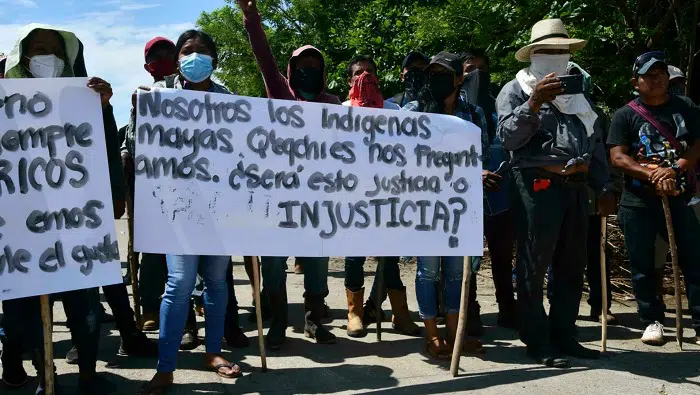 The Siege of El Estor: Resistance to the Continuation of an Extractive and Repressive Neoliberal Status Quo in Guatemala
The Siege of El Estor: Resistance to the Continuation of an Extractive and Repressive Neoliberal Status Quo in Guatemala
February 6, 2022
By Ben Gutman – Feb 1, 2022
First-hand reporting and analysis of the Maya Q’eqchi’ resistance movement against multinational corporate exploitation and in defense of land, nature, and the inalienable right to exist.
As we drove north from Cobán towards Chisec in the Guatemalan department of Alta Verapaz, my comrade, a local organizer, began pointing out the different Maya Q’eqchi’ communities and describing their ongoing struggles. Some villages are under siege by the government for refusing to vacate their lands. These besieged communities targeted by mass arrest orders are denied freedom of movement as community members who venture outside their village risk kidnapping and arbitrary detention by police and military. Within other communities, fierce conflict has erupted between neighbors and family members, some of whom have been paid off by oligarchic landowners or “finqueros” to sow chaos and facilitate an eventual mass eviction. Other villages no longer exist. Only the burned out frames of former houses remain following the violent removal of all residents. Our final destination was Monte Olivo, an indigenous Q’eqchi’ village that has continued to defend its land and the local Dolores River from oligarch-funded paramilitary attacks and state-sponsored terrorism for decades.
In the case of Monte Olivo, such attacks are carried out to repress and displace indigenous land defenders on behalf of Guatemalan oligarchs and Western governments financing the Santa Rita hydroelectric project. Since its inception in 2008 by the Santa Rita Hydroelectric Company (owned and operated by the Guatemalan oligarchic López-Roesch family of German origin), the project has been plagued by open conflict with the local population. In 2012, this UN-sponsored endeavor gained nearly 50 percent of its capital investment from the Dutch Entrepreneurial Development Bank in addition to funds provided by the New York-based $100 million private equity fund, the Latin Renewables Infrastructure Fund (LRIF). The LRIF’s investment sources included the World Bank’s International Finance Corporation, the German Development Bank (KfW), the Swiss Investment Fund for Emerging Markets, and the Spanish Agency for International Development Cooperation. For these international “development” institutions and corporate interests, the profits from exploitative mining, hydroelectric projects, and invasive export crops like African Palm are worth the brutal repression of indigenous Guatemalans whose subjugation to extreme violence has been endemic for some time.
A legacy of foreign intervention and the demolition of Guatemalan democracy
After centuries of genocidal colonial exploitation the 1944 Guatemalan popular uprising sparked a major shift towards inclusivity and egalitarianism. This “October Revolution” toppled a U.S.-backed military junta and brought an end to decades of repressive dictatorship led by General Jorge Ubico, a close ally of the United Fruit Company (UFC), who served the interests of wealthy landowners and compared himself to Adolf Hitler. After the second revolutionary president Jacobo Árbenz enacted Decree 900, a 1952 agrarian reform law that benefited approximately 500,000 peasant and indigenous Guatemalans to the detriment of the UFC, the CIA (led by UFC board member Allen Dulles) launched Operation PBFORTUNE, the precursor to the 1954 Operation PBSUCCESS which violently toppled the Árbenz government in the United States’ first Latin American Cold War intervention.
While visiting two political prisoners being held in the Cobán jail, one of the men told me that his imprisonment was the result of a legacy of violence and corruption unleashed by the 1954 CIA coup. Indeed, violence was directly facilitated by foreign powers, particularly the United States and Israel, during the 36-year internal conflict and genocide in Guatemala (1960-1996). More than 80 percent of all victims were indigenous Maya civilians and 93 percent of all killings were carried out by military forces, according to the United Nations-backed truth commission. December 29, 2021 marked the 25th anniversary of the signing of a peace accord that brought an end to the internal conflict, but “if any peace prevails in Guatemala, it is a peace resembling war.”
Resistance in the face of corporate exploitation and extreme state-sanctioned violence
The environmentally destructive Fenix nickel mine in El Estor has operated under the ownership of four different international mining companies since 1964 and is currently illegally run by the Guatemalan Nickel Company (GNC), a subsidiary of the Swiss-based Solway Investment Group. Since its arrival in 2011, Solway has consistently used violence and intimidation in an attempt to silence local opposition to the mine. As a result of the continuation of mining operations despite its ordered suspension by the Guatemalan Constitutional Court, on October 4, 2021 the ancestral authority known as the four Q’eqchi’ Councils in the municipality of El Estor in the Izabal department declared a formal state of resistance against the mine and the corporate cultivation of African Palm oil on indigenous territory. After 17 days of peaceful resistance following the October 4 declaration, the National Civil Police (PNC) forcefully evicted a community encampment created to block the passage of mining materials to the Fenix mine. Shortly thereafter, the Government of Guatemala declared the second state of siege in El Estor within the past 14 months, passing Decree 9-2021, which allowed for the mobilization of 500 soldiers and 350 PNC to crack down on “civil unrest” and “restore order and public security”. Months of state-sponsored terror has ensued.
The Convergence for Human Rights Coalition has reported disproportionate use of force by police, soldiers, and agents of the Public Ministry against the community and journalists including the use of tear gas against women and children, physical attacks, illegal detention, and destruction of property. In early December when I was in Cobán, I spoke with a journalist returning from El Estor who said he was repeatedly harassed, detained, and assaulted by police and military. I also spoke with a community leader and former political prisoner from El Estor who claimed that more than 50 community members had been killed since the siege began including by being run over by military vehicles.
After a paramilitary group burned down Q’eqchi’ homes outside El Estor and police evicted the remaining villagers to clear land for the NaturAceites African palm company, viral videos sparked nine U.S. congressional representatives to release a letter to Secretary of State Antony Blinken urging for the evaluation of “U.S. support and training for the Guatemalan police and military.” The letter makes clear the significant possibility that U.S. military equipment, including vehicles, Pegasus software and biometric data sharing technology, are being used to surveil and target indigenous and political opposition leaders in Guatemala.
Ending a vicious cycle: U.S. security funding & neoliberal development, repression, displacement, forced migration, and repeat
In June 2021, Vice president Kamala Harris traveled to Guatemala to tell the Guatemalan people not to come to the United States with assurances of addressing the “root cause” of migration. However, it is abundantly clear that this was a perverse cooptation of progressive terminology as the Biden administration intends to do the exact opposite. Harris has translated policy advice from Wall Street and Big Tech into a continuation of neocolonial exploitation in Central America through $1.2 billion in private sector investment from some of the world’s most egregious human rights violators like the Cargill corporation. Cargill’s top palm oil supplier Wilmar International Limited, has been implicated in acts of violence, intimidation, and home demolition in Indonesia that mirror the violent evictions carried out on behalf of the NaturAceites African palm company near El Estor.
In coordination with Harris’s “public-private partnership” publicized as the “Call to Action” for Central America, an “independent” NGO, the “Partnership for Central America (PFCA)”, which partners “closely with the U.S. State Department”, also announced “significant commitments to address the root causes of migration”. The PFCA’s board of directors includes Klaus Schwab, the Founder & Executive Chairman of the elite Davos-based World Economic Forum, who openly advocates for a “Great Reset” towards a system of global technocracy based on stakeholder capitalism. Representatives from other predatory capitalist institutions on Wall Street and in Silicon Valley include the Executive Chairman of Mastercard Ajay Banga and the President of Microsoft Brad Smith. From 2010-2019, Microsoft made $14.6 million from contracts with ICE. A little more than a year after 300 Microsoft employees signed a letter calling on the company to cancel these contracts in the midst of Trump’s family separation policy, Microsoft-owned Git Hub renewed a $200,000 ICE contract.
Claims that militarized “smart” borders, private sector investment, and a continuation of the neoliberal development model will deter migration are thoroughly contested by decades of repression, displacement, and forced migration experienced in indigenous communities like Monte Olivo and El Estor. Until this development and security model is dismantled and indigenous and peasant communities are allowed to work the land of their ancestors in peace, the violent status quo will continue in perpetuity. For individuals seeking ways to challenge this status quo, standing in solidarity with indigenous communities defending their land and the environment throughout the Americas should be a top priority.
Ben Gutman is pursuing a MA in Global Communication, specializing in Latin American politics and social movements, at the George Washington University. He received his BA in Political Economy with a minor in Global Poverty and Practice from UC Berkeley. He can be contacted at gutmanbm@gwu.edu.
Featured image: Thousands of members of the Army, the National Civil Police (PNC), the Navy and the Air Force, impose a state of siege in El Estor, against the civilian population demanding their rights. Photo: Telesur.
https://orinocotribune.com/the-siege-of ... guatemala/


